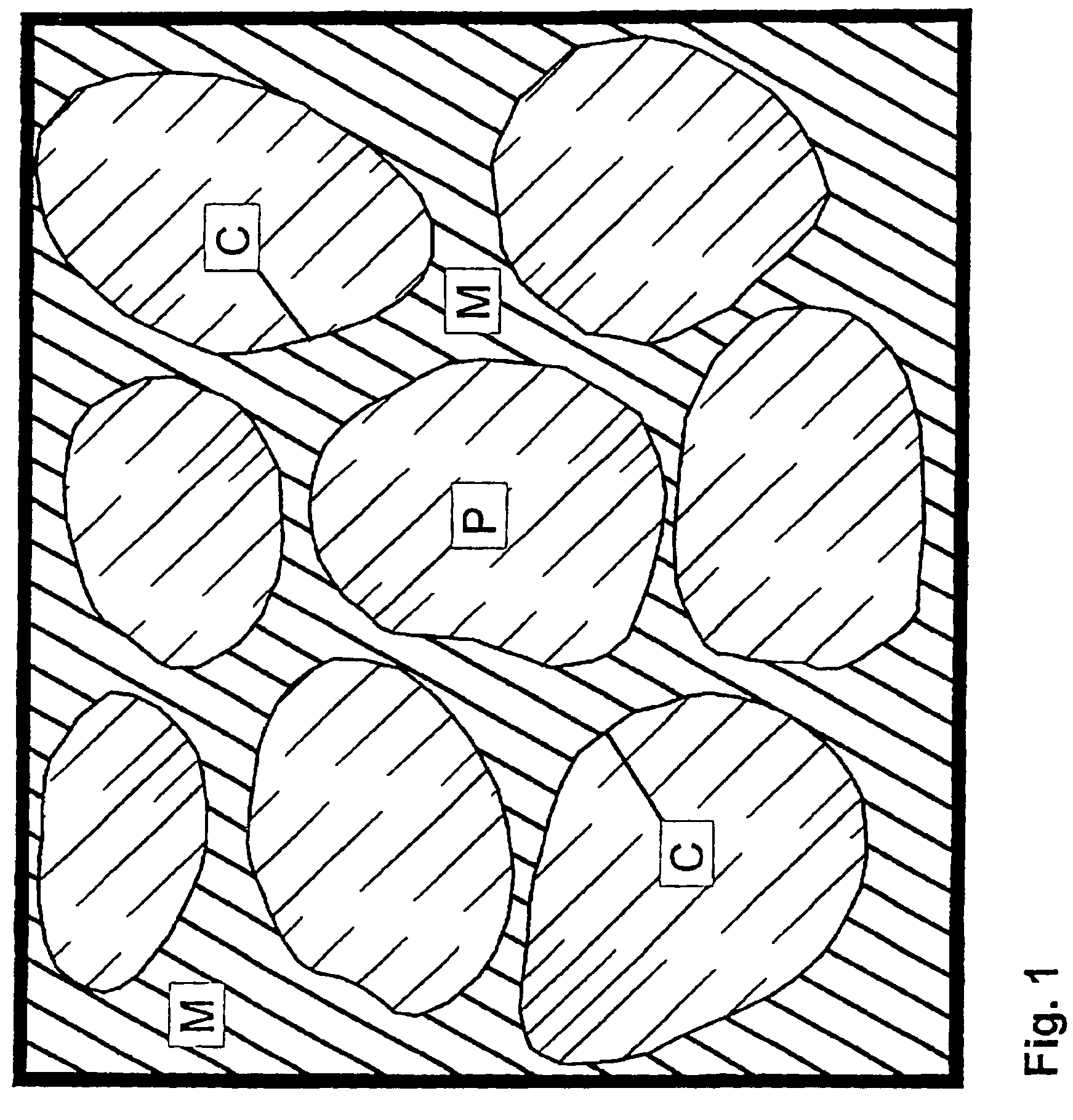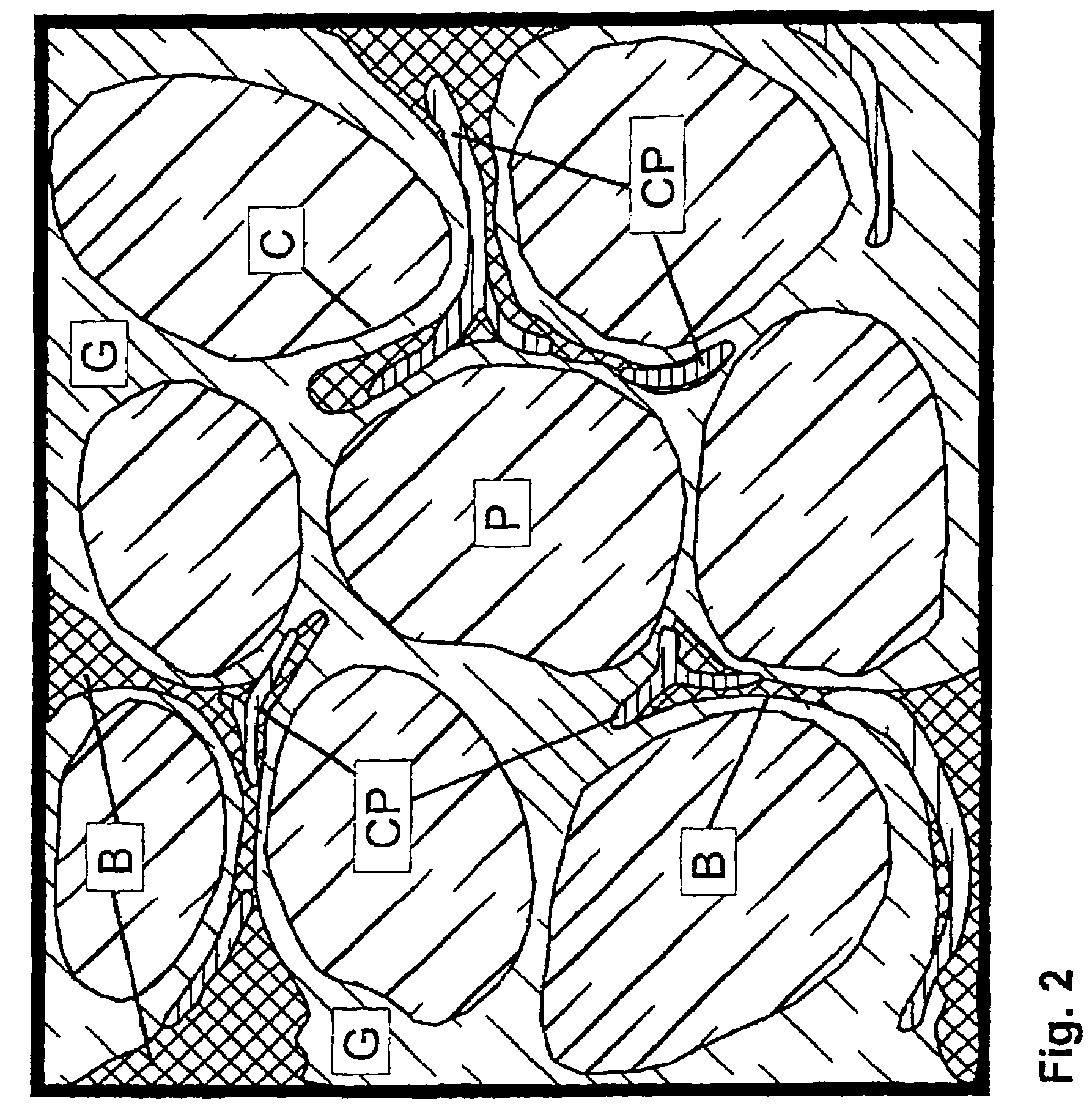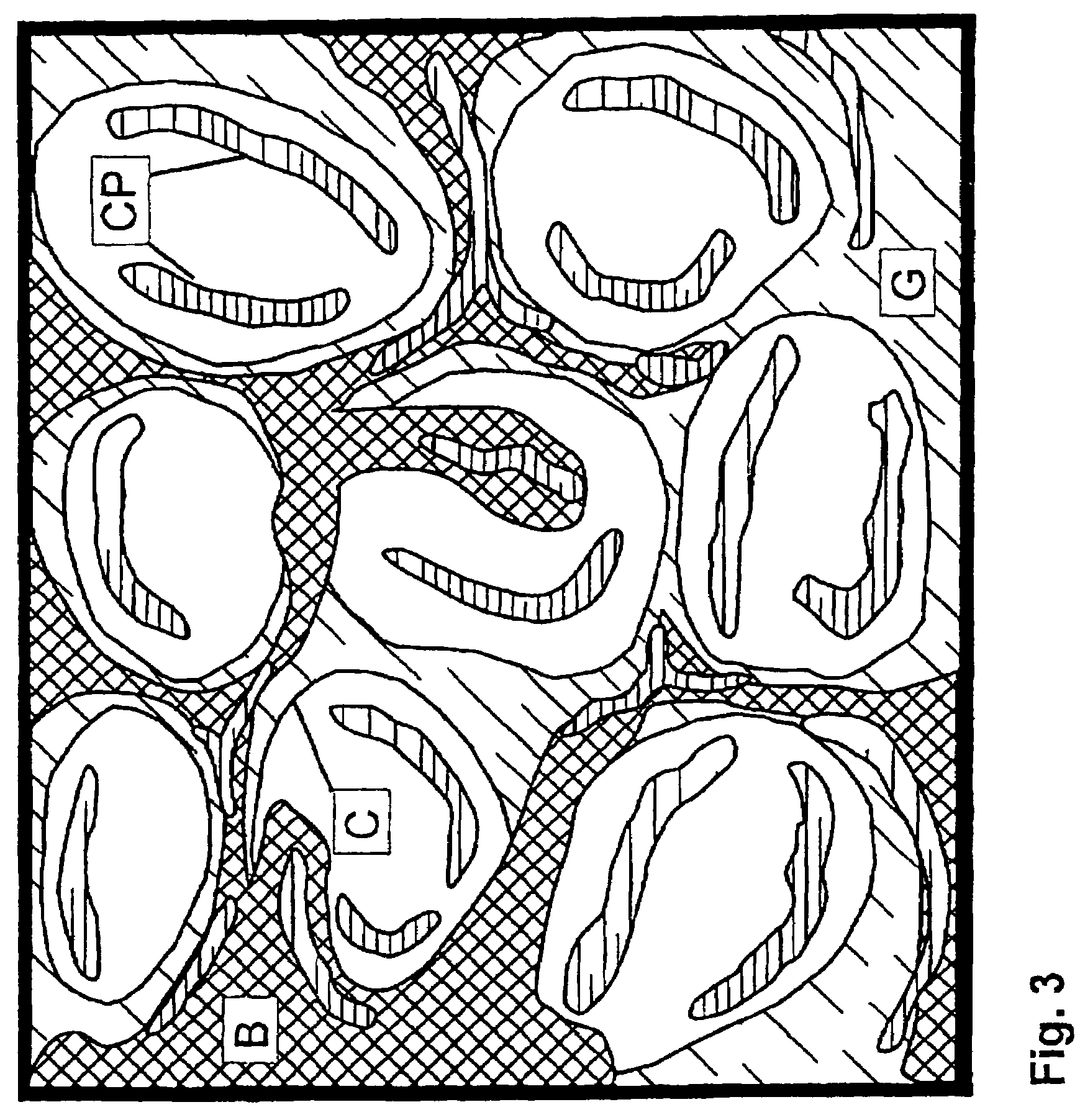Method for manufacturing particles for use in forming a resorbable implant for stimulating bone growth
a technology of resorbable implants and manufacturing methods, which is applied in the direction of prosthesis, colloidal chemistry, impression caps, etc., can solve the problems of reducing the value of calcium sulfate materials for both patient and practitioner, calcium sulfate materials bio-resorb or dissolve too, and outpacing the formation of new bone in human patients
- Summary
- Abstract
- Description
- Claims
- Application Information
AI Technical Summary
Benefits of technology
Problems solved by technology
Method used
Image
Examples
example
[0066]In vitro degradation profiles polymer-containing particles according to an embodiment of the present invention having calcium sulfate to PLLA weight ratio of about 96:4 (hereinafter referred to as “BoneGen-TR”) and pure calcium sulfate were determined. One-twentieth of a gram of each material was weighed, wrapped in porous nylon mesh, and weighed again to determine the weight of the nylon mesh. It was then incubated in simulated body fluid (SBF) for one hour, removed from SBF, air-dried, and weighed again. This weight was considered the baseline weight to perform future calculations and to determine degradation profiles for each of the materials. Samples were then incubated in the SBF, removed from the fluid every fourth day, air-dried, and weighed. The SBF was then discarded and the test materials were again incubated in fresh SBF. Samples were weighed until three (3) consecutive readings showed no loss of weight.
[0067]In vivo studies: BoneGen-TR pellets were sterilized by ga...
PUM
| Property | Measurement | Unit |
|---|---|---|
| temperature | aaaaa | aaaaa |
| temperature | aaaaa | aaaaa |
| temperature | aaaaa | aaaaa |
Abstract
Description
Claims
Application Information
 Login to View More
Login to View More - R&D
- Intellectual Property
- Life Sciences
- Materials
- Tech Scout
- Unparalleled Data Quality
- Higher Quality Content
- 60% Fewer Hallucinations
Browse by: Latest US Patents, China's latest patents, Technical Efficacy Thesaurus, Application Domain, Technology Topic, Popular Technical Reports.
© 2025 PatSnap. All rights reserved.Legal|Privacy policy|Modern Slavery Act Transparency Statement|Sitemap|About US| Contact US: help@patsnap.com



